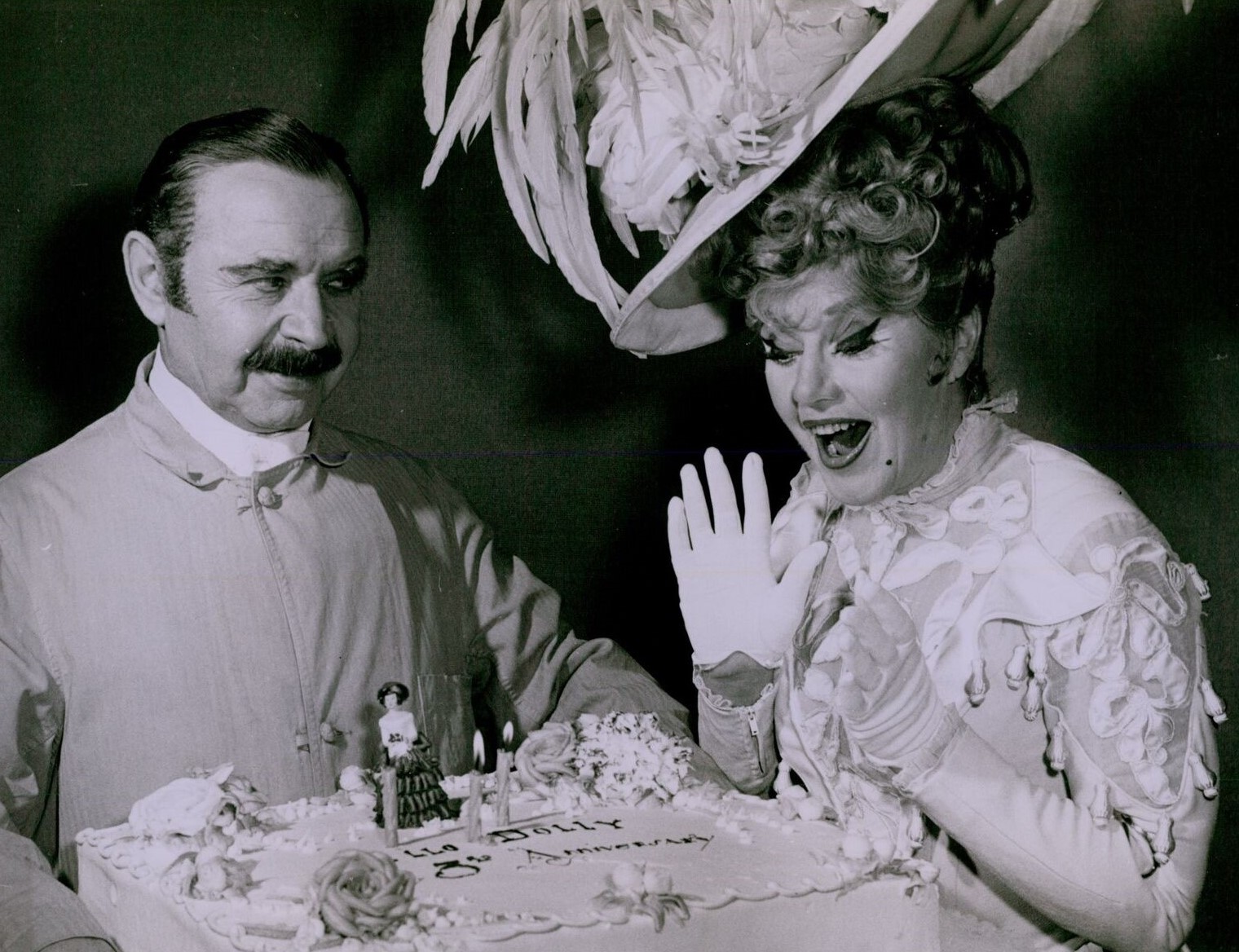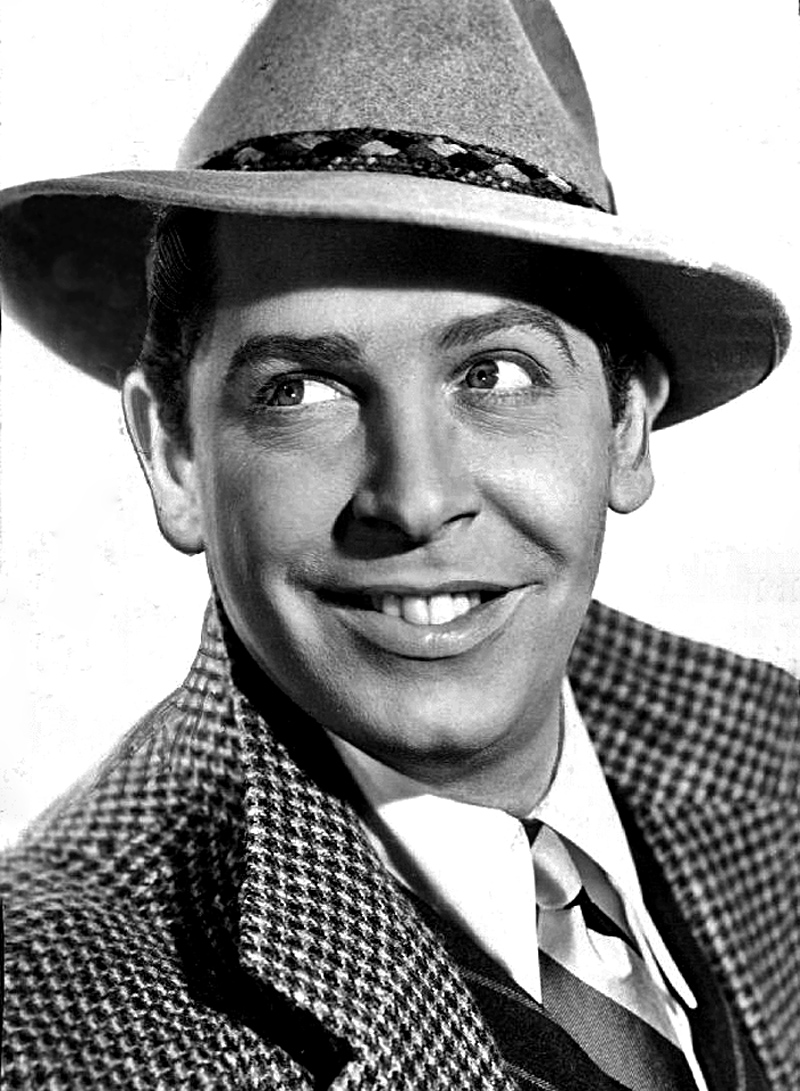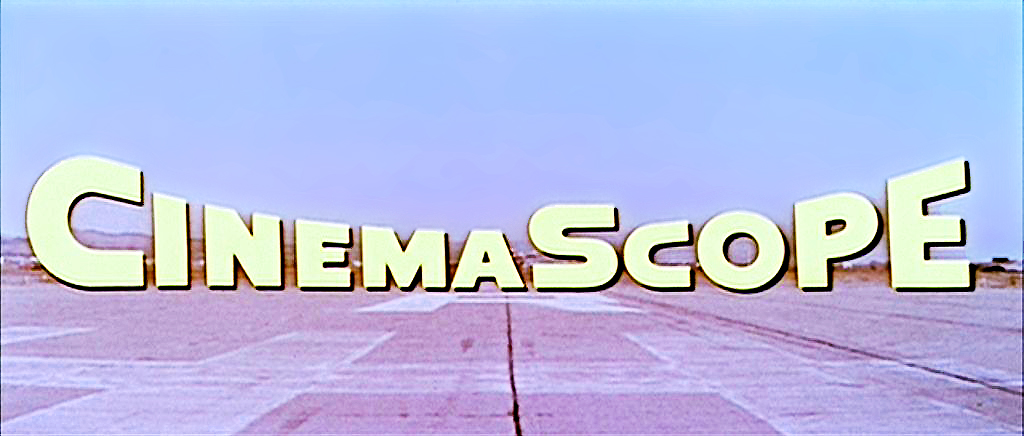|
Let's Make Love
''Let's Make Love'' is a 1960 American musical comedy film made by 20th Century Fox in DeLuxe Color and CinemaScope. Directed by George Cukor and produced by Jerry Wald from a screenplay by Norman Krasna, Hal Kanter, and Arthur Miller, the film stars Marilyn Monroe, Yves Montand, and Tony Randall. It would be Monroe's last musical film performance. Plot The plot revolves around billionaire Jean-Marc Clément who learns that he is to be satirized in an off-Broadway revue. After going to the theatre, he sees Amanda Dell rehearsing the Cole Porter song " My Heart Belongs to Daddy", and, by accident, the director thinks him an actor suitable to play himself in the revue. Clément takes the part in order to see more of Amanda and plays along with the mistaken identity, going by the name Alexander Dumas. While rehearsing, Clément finds himself growing jealous of Amanda's attentions to actor Tony Danton, unaware that she only wants to help Tony achieve stardom. In order to impress Aman ... [...More Info...] [...Related Items...] OR: [Wikipedia] [Google] [Baidu] |
CSS (band)
CSS (an initialism of Cansei de Ser Sexy) (, in São Paulo, English lit. "Tired of being sexy") is a Brazilian rock band from São Paulo. The band was labeled as part of the explosion of the new rave scene. Their songs are in both English and Portuguese. History 2003–06: Formation and ''Cansei de Ser Sexy'' (Brazilian album) CSS formed in September 2003, consisting of a group of friends. Their name was taken from a reported quote by Beyoncé, who allegedly declared that she was "tired of being sexy". The band first garnered fame through the internet. Some of its members, like Adriano Cintra, and Wendi Bishop, had been previously known in São Paulo's underground club scene, but not outside of the local alternative subculture. Others, like Lovefoxxx, were the owners of popular Fotolog and Flickr pages. Their collective band fotolog also gained popularity and their songs were frequently downloaded from Trama Virtual's website. Several songs by CSS were featured in mainstream ... [...More Info...] [...Related Items...] OR: [Wikipedia] [Google] [Baidu] |
Musical Film
Musical film is a film genre in which songs by the characters are interwoven into the narrative, sometimes accompanied by dancing. The songs usually advance the plot or develop the film's characters, but in some cases, they serve merely as breaks in the storyline, often as elaborate "production numbers". The musical film was a natural development of the stage musical after the emergence of sound film technology. Typically, the biggest difference between film and stage musicals is the use of lavish background scenery and locations that would be impractical in a theater. Musical films characteristically contain elements reminiscent of theater; performers often treat their song and dance numbers as if a live audience were watching. In a sense, the viewer becomes the diegetic audience, as the performer looks directly into the camera and performs to it. With the advent of sound in the late 1920s, musicals gained popularity with the public and are exemplified by the films of Busby Ber ... [...More Info...] [...Related Items...] OR: [Wikipedia] [Google] [Baidu] |
David Burns (actor)
David Burns (June 22, 1902 – March 12, 1971) was an American Broadway theatre and motion picture actor and singer. Life and career Burns was born on Mott Street in Chinatown, Manhattan. He made his Broadway debut in 1923 in '' Polly Preferred '' and went to London with the show in 1924. His first musical was '' Face the Music'' in 1932, and Cole Porter's ''Nymph Errant'' (1933) was his London debut. He appeared in many comedies and musicals over an almost 50-year career."David Burns Broadway" ''Playbill''. Retrieved October 12, 2017. He won two s for [...More Info...] [...Related Items...] OR: [Wikipedia] [Google] [Baidu] |
Wilfrid Hyde-White
Wilfrid Hyde-White (12 May 1903 – 6 May 1991) was a British character actor of stage, film and television. He achieved international recognition for his role as Colonel Pickering in the film version of the musical ''My Fair Lady'' (1964). Early life and career Wilfrid Hyde White was born in Bourton-on-the-Water in Gloucestershire, England in 1903 to the Rev. William Edward White, canon of Gloucester Cathedral, and his wife, Ethel Adelaide ( Drought). He was the nephew of actor J. Fisher White. He attended Marlborough College and the Royal Academy of Dramatic Art, of which he said, "I learned two things at RADA - I can't act and it doesn't matter." He made his stage debut in the farcical play '' Tons of Money'' on the Isle of Wight in 1922 and appeared in the West End for the first time three years later in the play ''Beggar on Horseback''. He then gained steady work on the stage in a series of comedies produced at the Aldwych Theatre in London. He joined a tour of South Af ... [...More Info...] [...Related Items...] OR: [Wikipedia] [Google] [Baidu] |
Bing Crosby
Harry Lillis "Bing" Crosby Jr. (May 3, 1903 – October 14, 1977) was an American singer, musician and actor. The first multimedia star, he was one of the most popular and influential musical artists of the 20th century worldwide. He was a leader in record sales, radio ratings, and motion picture grosses from 1926 to 1977. He made over 70 feature films and recorded more than 1,600 songs. His early career coincided with recording innovations that allowed him to develop an intimate singing style that influenced many male singers who followed, such as Frank Sinatra, Perry Como, Dean Martin, Dick Haymes, Elvis Presley, and John Lennon. ''Yank'' magazine said that he was "the person who had done the most for the morale of overseas servicemen" during World War II. In 1948, American polls declared him the "most admired man alive", ahead of Jackie Robinson and Pope Pius XII. In 1948, ''Music Digest'' estimated that his recordings filled more than half of the 80,000 weekly hou ... [...More Info...] [...Related Items...] OR: [Wikipedia] [Google] [Baidu] |
Gene Kelly
Eugene Curran Kelly (August 23, 1912 – February 2, 1996) was an American actor, dancer, singer, filmmaker, and choreographer. He was known for his energetic and athletic dancing style and sought to create a new form of American dance accessible to the general public, "dance for the common man." He starred in, choreographed, and co-directed with Stanley Donen some of the most well-regarded musical films of the 1940s and 1950s. Kelly is best known for his performances in ''An American in Paris'' (1951), which won the Academy Award for Best Picture, ''Singin' in the Rain'' (1952), which he and Donen directed and choreographed, and other musical films of that era such as ''Cover Girl'' (1944) and ''Anchors Aweigh'' (1945), for which he was nominated for an Academy Award for Best Actor. '' On the Town'' (1949), which he co-directed with Donen, was his directorial debut. Later in the 1950s, as musicals waned in popularity, he starred in ''Brigadoon'' (1954) and ''It's Always Fair Wea ... [...More Info...] [...Related Items...] OR: [Wikipedia] [Google] [Baidu] |
Milton Berle
Milton Berle (born Mendel Berlinger; ; July 12, 1908 – March 27, 2002) was an American actor and comedian. His career as an entertainer spanned over 80 years, first in silent films and on stage as a child actor, then in radio, movies and television. As the host of NBC's ''Texaco Star Theatre'' (1948–1953), he was the first major American television star and was known to millions of viewers as "Uncle Miltie" and "Mr. Television" during the first Golden Age of Television. He was honored with two stars on the Hollywood Walk of Fame for his work in both radio and TV. Early life Milton Berle was born into a Jewish family in a five-story walkup at 68 W. 118th Street in the Harlem neighborhood of Manhattan. His given name was Mendel Berlinger, but he chose Milton Berle as his professional name when he was 16. His father, Moses Berlinger (1872–1938), was a paint and varnish salesman. His mother, Sarah (Sadie) Glantz Berlinger (1877–1954), changed her name to Sandra Berle when ... [...More Info...] [...Related Items...] OR: [Wikipedia] [Google] [Baidu] |
Alexandre Dumas
Alexandre Dumas (, ; ; born Dumas Davy de la Pailleterie (), 24 July 1802 – 5 December 1870), also known as Alexandre Dumas père (where '' '' is French for 'father', to distinguish him from his son Alexandre Dumas fils), was a French writer. His works have been translated into many languages and he is one of the most widely read French authors. Many of his historical novels of adventure were originally published as serials, including '' The Count of Monte Cristo'', ''The Three Musketeers'', ''Twenty Years After'' and '' The Vicomte of Bragelonne: Ten Years Later''. His novels have been adapted since the early twentieth century into nearly 200 films. Prolific in several genres, Dumas began his career by writing plays, which were successfully produced from the first. He also wrote numerous magazine articles and travel books; his published works totalled 100,000 pages. In the 1840s, Dumas founded the Théâtre Historique in Paris. His father, General Thomas-Alexandre Dumas D ... [...More Info...] [...Related Items...] OR: [Wikipedia] [Google] [Baidu] |
My Heart Belongs To Daddy
"My Heart Belongs to Daddy" is a song written by Cole Porter, for the 1938 musical ''Leave It to Me!'' which premiered on November 9, 1938. It was originally performed by Mary Martin, who played Dolly Winslow, the young "protégée" of a rich newspaper publisher. In the original context, Dolly is stranded at a Siberian railway station, wearing only a fur coat, and performs a striptease while singing the song. Surrounded by eager Siberian men, she says that since she has met "daddy", she will flirt with other men, but won't "follow through". "Daddy" is her sugar daddy, a newspaper magnate introduced with the words, "I've come to care, for such a sweet millionaire". Later versions Martin sang it again in the 1940 movie '' Love Thy Neighbor''. Again she wears a fur coat, but the setting is a show within a show and the act is more conventional as she wears an evening gown beneath the fur. The words to the introduction are altered, the innuendoes being toned down. Her best-known m ... [...More Info...] [...Related Items...] OR: [Wikipedia] [Google] [Baidu] |
Cole Porter
Cole Albert Porter (June 9, 1891 – October 15, 1964) was an American composer and songwriter. Many of his songs became standards noted for their witty, urbane lyrics, and many of his scores found success on Broadway and in film. Born to a wealthy family in Indiana, Porter defied his grandfather's wishes for him to practice law and took up music as a profession. Classically trained, he was drawn to musical theatre. After a slow start, he began to achieve success in the 1920s, and by the 1930s he was one of the major songwriters for the Broadway musical stage. Unlike many successful Broadway composers, Porter wrote the lyrics as well as the music for his songs. After a serious horseback riding accident in 1937, Porter was left disabled and in constant pain, but he continued to work. His shows of the early 1940s did not contain the lasting hits of his best work of the 1920s and 1930s, but in 1948 he made a triumphant comeback with his most successful musical, ''Kiss Me, Kate ... [...More Info...] [...Related Items...] OR: [Wikipedia] [Google] [Baidu] |
Theatre
Theatre or theater is a collaborative form of performing art that uses live performers, usually actors or actresses, to present the experience of a real or imagined event before a live audience in a specific place, often a stage. The performers may communicate this experience to the audience through combinations of gesture, speech, song, music, and dance. Elements of art, such as painted scenery and stagecraft such as lighting are used to enhance the physicality, presence and immediacy of the experience. The specific place of the performance is also named by the word "theatre" as derived from the Ancient Greek θέατρον (théatron, "a place for viewing"), itself from θεάομαι (theáomai, "to see", "to watch", "to observe"). Modern Western theatre comes, in large measure, from the theatre of ancient Greece, from which it borrows technical terminology, classification into genres, and many of its themes, stock characters, and plot elements. Theatre artist Patrice ... [...More Info...] [...Related Items...] OR: [Wikipedia] [Google] [Baidu] |
CinemaScope
CinemaScope is an anamorphic lens series used, from 1953 to 1967, and less often later, for shooting widescreen films that, crucially, could be screened in theatres using existing equipment, albeit with a lens adapter. Its creation in 1953 by Spyros P. Skouras, the president of 20th Century Fox, marked the beginning of the modern anamorphic format in both principal 2.55:1, almost twice as wide as the previously common Academy format's 1.37:1 ratio. Although the technology behind the CinemaScope lens system was made obsolete by later developments, primarily advanced by Panavision, CinemaScope's anamorphic format has continued to this day. In film-industry jargon, the shortened form, 'Scope, is still widely used by both filmmakers and projectionists, although today it generally refers to any 2.35:1, 2.39:1, 2.40:1, or 2.55:1 presentation or, sometimes, the use of anamorphic lensing or projection in general. Bausch & Lomb won a 1954 Oscar for its development of the CinemaScope l ... [...More Info...] [...Related Items...] OR: [Wikipedia] [Google] [Baidu] |

.jpg)







